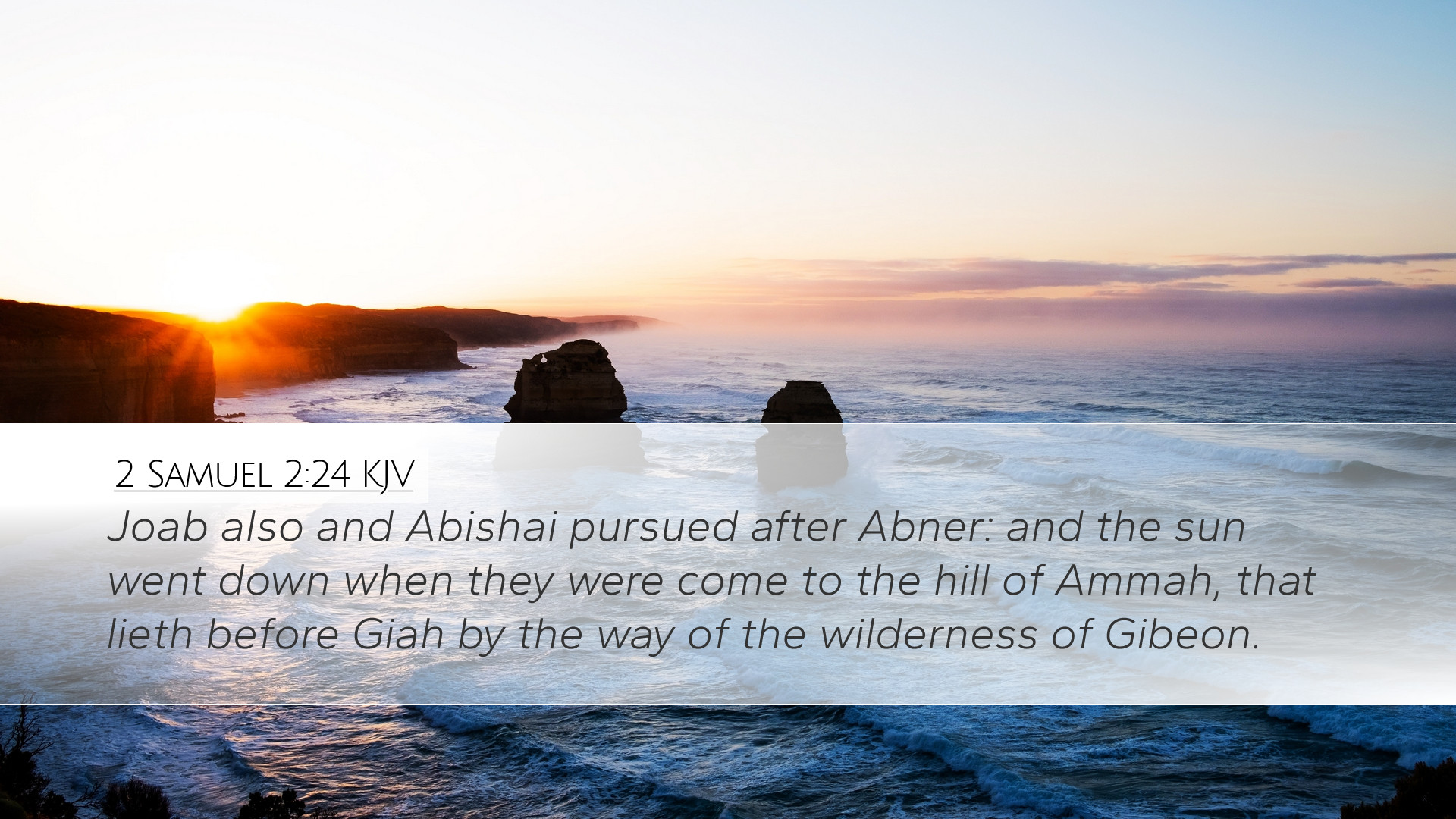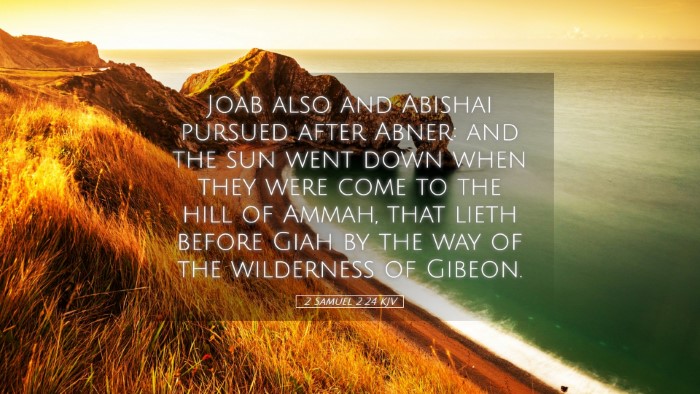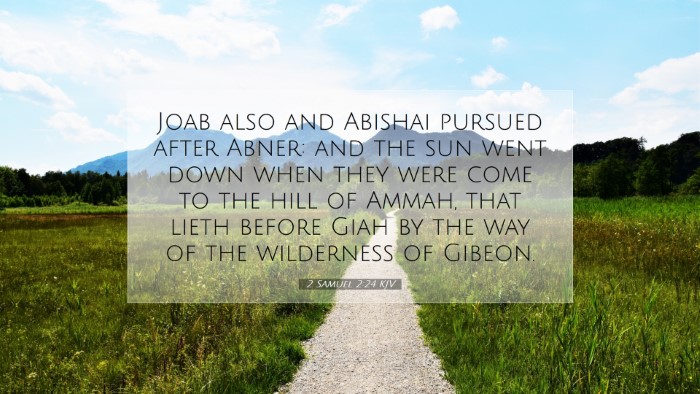Commentary on 2 Samuel 2:24
Verse Reference: "But Joab and Abishai pursued after Abner: and the sun went down when they were come to the hill of Ammah, that lieth before Giah by the way of the wilderness of Gibeon."
Contextual Background
This passage sits in a broader narrative that highlights the power struggles and the civil war following King Saul's death. The conflict between David and Saul's remaining supporters, particularly Abner, sets the stage for this verse. Abner is a key figure, having led the forces that opposed David during this tumultuous transition.
Insights from Public Domain Commentaries
Matthew Henry's Commentary
Matthew Henry emphasizes the relentless pursuit of Joab and Abishai as a reflection of their character and commitment to David. He illustrates that Joab, in particular, is portrayed as a fierce warrior and loyal commander. Henry notes, “The determination of Joab to pursue Abner, even to the point of day’s end, reflects the import of loyalty towards David’s claim to the throne. His actions also foreshadow the future conflicts that will arise from such loyalties.”
Albert Barnes' Notes
Albert Barnes provides a historical context for the geographical locations mentioned—Ammah, Giah, and Gibeon—indicating their strategic importance in the region. He remarks on the significance of these places in the ongoing military and political maneuvers, stating, “The wilderness of Gibeon served not only as a backdrop for a battle but also represents the broader theme of wilderness experiences faced by leaders as they seek to establish their kingdoms.”
Furthermore, Barnes discusses the psychological element of Andrew's flight. He mentions how Abner arose as a significant leader, and with Joab's perseverance, it underscores the intense rivalry and high stakes involved in David's rise to power.
Adam Clarke's Commentary
Adam Clarke delves deeper into the personal attributes of Joab and Abner, indicating their respective motivations. He writes, “Joab’s pursuit is not simply a military action but a deeply personal affair, illustrating the animosity and vendetta that characterized ancient warfare.” Clarke analyzes the outcomes of their conflict and its implications for future leadership, shedding light on the moral challenges they faced and the consequences of their relentless pursuits.
Theological Reflections
This verse encapsulates themes of leadership, loyalty, and the moral ambiguities faced during tumultuous times. For pastors and theologians, it serves as a reminder of the human condition and the often conflicting interests that leaders encounter. The pursuit of Abner by Joab and Abishai raises important considerations about the nature of justice, mercy, and the righteous use of power.
- Loyalty to Authority: Joab's actions demonstrate unwavering loyalty, yet raise questions about the lengths one should go in pursuit of allegiance.
- The Cost of Pursuit: The pursuit of ambitions can lead to conflict and strife; this narrative invites reflection on personal ambitions versus communal peace.
- Conflict Resolution: This passage opens discussions on how leaders can navigate conflicts, emphasizing the need for wisdom in the use of power and strategy.
Application for Modern Leaders
Modern-day leaders, whether in ministry, business, or community, can extract valuable lessons from this historical account.
- Conflict Awareness: Cultivate awareness that conflicts often arise from loyalty issues; recognizing them can prevent escalation.
- Strategic Thinking: Leaders should engage in strategic planning and navigate their environment almost like a military leader would, being aware of geographical and interpersonal dynamics.
- Reflections on Perseverance: While perseverance like Joab's is commendable, it is crucial to align such determination with ethical considerations.
Conclusion
In conclusion, 2 Samuel 2:24 offers profound insights into the nature of leadership and the realities of human relationships within the context of conflict. Scholars and students of the Scriptures are encouraged to view this passage not just as a historical account but as a living document that resonates with the ongoing struggles faced by leaders today. The narratives intertwined within this scripture serve to deepen understanding of trust, loyalty, and the arduous path of governance.


